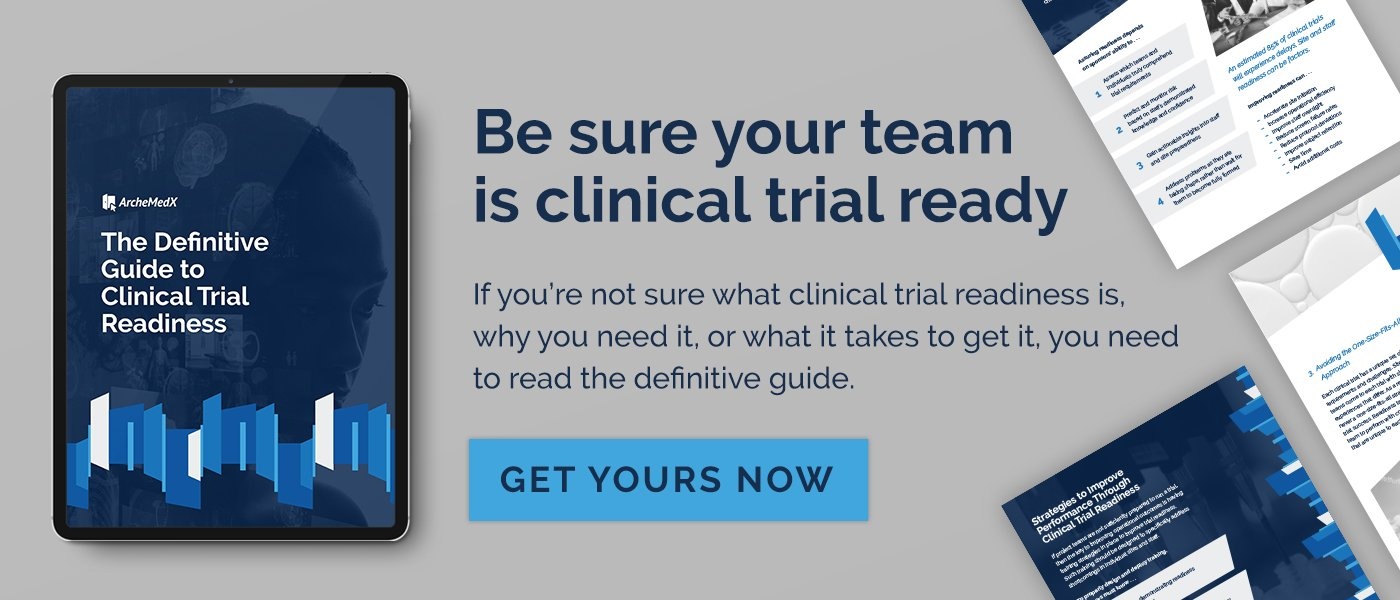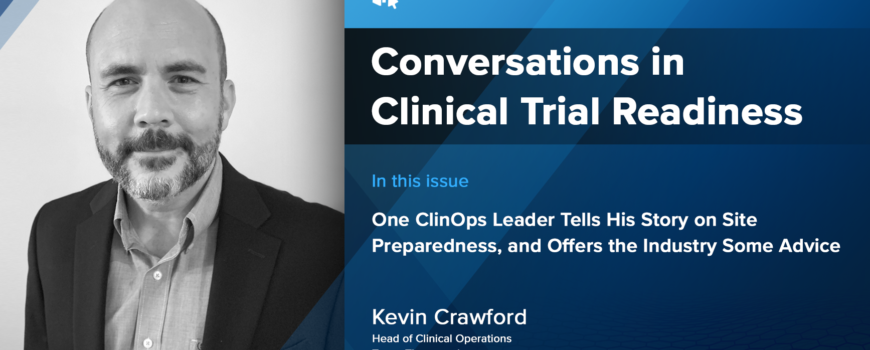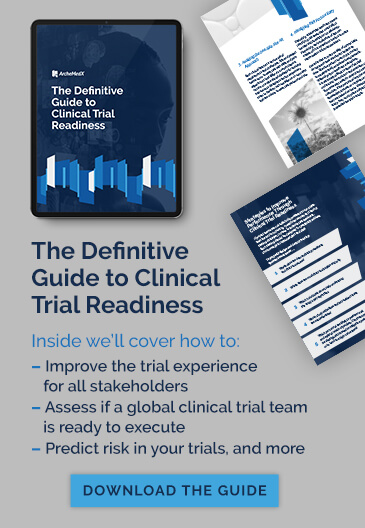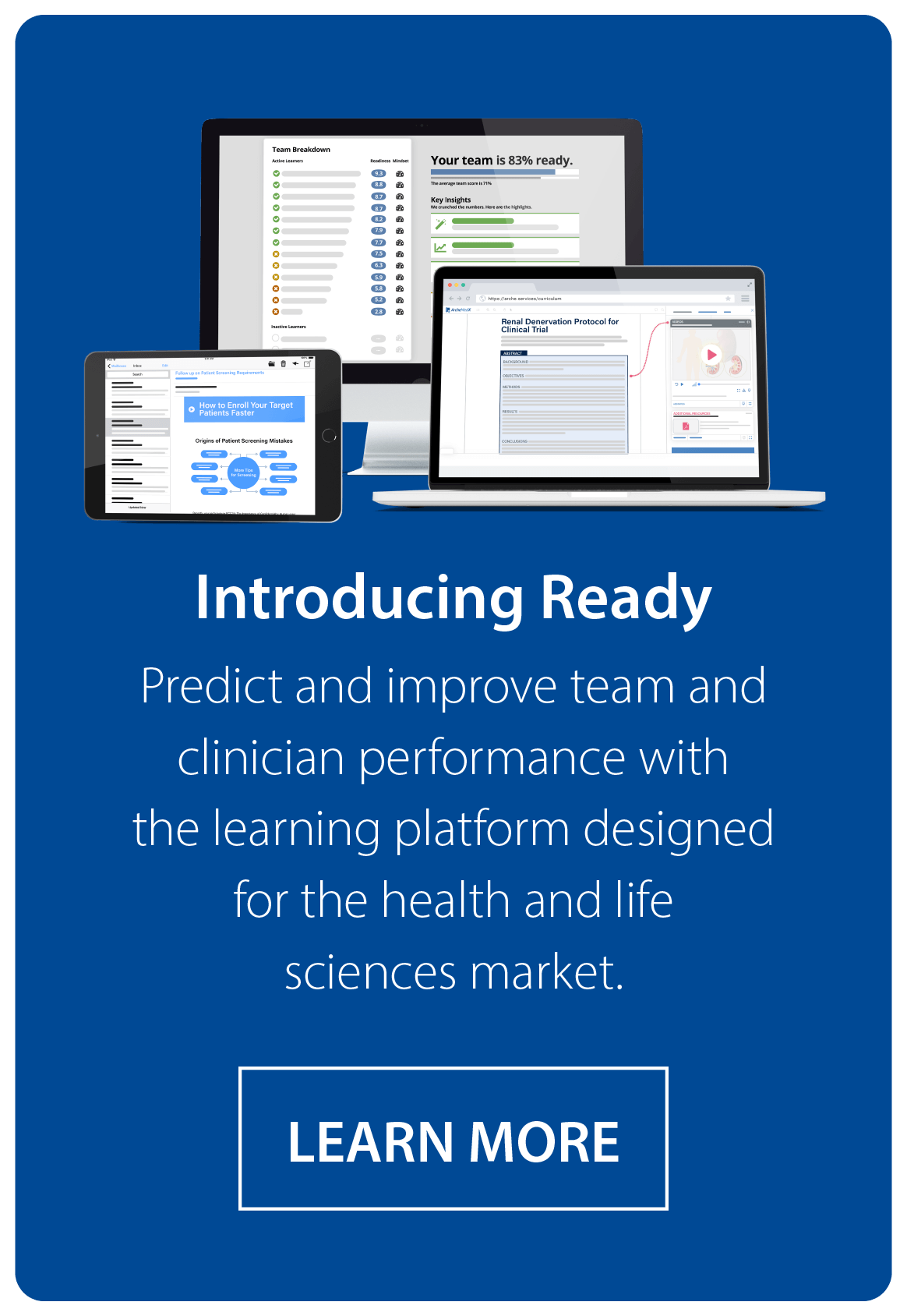
We recently spoke with Kevin M. Crawford, head of clinical operations at Tenax Therapeutics, a specialty pharmaceutical company based in Morrisville, North Carolina, that focuses on identifying, developing, and commercializing products to address cardiovascular and pulmonary diseases. We wanted to share these excerpts from the conversation:
ArcheMedX:
You’ve talked about the importance of telling your story. Can you expound on that?
Crawford:
At Tenax therapeutics, we’re a small company. There are 10 of us. This — levosimendan — is our product. This is what we want to do. There’s a story behind us and about how we got here. That’s an interesting story to investors, investigators, and site staff, and it includes important lessons we’ve learned up to this point in our clinical development. Specific to our current trial, an example might be, “We found this problem with ordering this drug at institutional pharmacies. Here’s the background. Here’s how to overcome it.” Or, “Here’s a suggested process for designing your day when performing a right heart catheterization, followed by a 24- hour infusion, followed by another right heart catheterization, so that we have standard results across 15 sites.” We don’t sit back, write a protocol, and then expect the data to come in at the end of the day. We’re continually out there creating the messages for, and telling the story of, our study.
ArcheMedX:
So, you value taking the time to do the ongoing communications, to commit to that?
Crawford:
Yes. These investigators don’t have a lot of time, but they’re keenly interested in what we’re doing. So we give them the information in a style that is appropriate for them. I don’t want to unnecessarily call them every week and talk for a half hour. Especially if that’s not the way they want to receive information. We design appropriate messaging for each investigator by getting information into a platform that fits. It might be four or five slides, a five-minute (or less) phone call, an email, or even a text. We also embrace technology and record training sessions that can be reviewed at a later date, thus further standardizing our messaging and story around the study.
ArcheMedX:
Do you find everybody receptive to your continual input?
Crawford:
It’s a fair question. I have an investigator whom I can text right now — a leading cardiologist —and he would text me back. But I have another one who would not. So it’s a style thing for investigators and study coordinators. Do they like email? Do they prefer the phone? Do they like texts? Sometimes you just go face to face, share some coffee. It depends.
ArcheMedX:
Do you often find problems with the performance of your sites?
Crawford:
The thing is that we sometimes have sites that are willing, but not prepared. A site might say, “We can enroll 10 patients.” But they’re not prepared to do it. Or a vendor will say, “We can get this study started up in this timeframe.” But they’re not prepared to do it. That creates challenges.
ArcheMedX:
How do you know whether a site is prepared or not?
Crawford:
A lot of times, it’s just listening. There are telltale signs, key performance indicators of things getting dropped. During a meeting, do people seem to comprehend the project or the timelines or the cost? If you’re dealing with a vendor, are meeting minutes coming back that express their understanding? Was previous enrollment good over time? There are plenty of different ways to assess, but a lot of times it just has to do with just picking up the phone and asking, “How are things going? What can we do to improve? Anything we can help you with?”

ArcheMedX:
Are you checking in or assessing still as the trial continues?
Crawford:
I think a level of due diligence is always appropriate. And I definitely have been caught off guard, trusted too much that something was being taken care of when it wasn’t.
ArcheMedX:
Do you have any plans for changing the way you go about interacting with or preparing your sites?
Crawford:
I have plenty of ideas: Providing more visual tools to sites, for example, short videos or something else to help them visualize what needs to happen on the study. Maybe it’s a training video. Maybe it’s Doodle. Patients, too, could benefit. They read a consent form. It includes a lot of information. Usually it’s written way above the eighth–grade reading level. Using apps, art, and technology, we could help people better understand the study as a whole.
ArcheMedX:
Anything else you’d like to share?
Crawford:
I’d like to say a word about leadership and the need for leaders to take risks and be willing to speak up. We all have that little voice in our head telling us that we’re not good enough, that we better not raise our hand, for fear of being wrong. But that’s how things move forward. That’s how innovation is created. I’d like for us, collectively, to have the boldness and audacity to speak up and to take charge, take ownership, be accountable, and move the ball forward, because we all need it. You don’t have to wait for permission to be a leader.
Another comment on moving forward: Our industry in general tends to attract a certain type of professional for whom perfection is the ideal. I think that may limit innovation. We always want to replicate what we did before: This study was a success, so we should do the next the same way. This protocol template works, so we’re never going to change it. Our consent is great. We’ve never gotten a 483, so let’s use that consent form again. Nobody wants to stick their neck out and be rewarded with an FDA audit. So there’s that challenge in the industry. Being a perfectionist is not a bad thing, but I hope we can strive for being exceptional while being innovative at the same time.
ArcheMedX:
As Kevin said, even those sites that are fully willing might not be prepared to conduct studies, particularly in challenging fields like cardiology. Today’s industry leaders need to be communicative and innovative to succeed.





